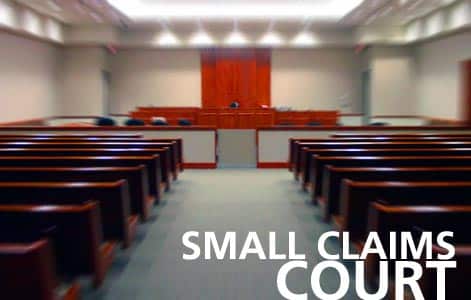What is it?
- Small Claims Court is a branch of the superior court of justice, and is considered civil law
- Claims must not exceed $25,000
- Must be within 6 years since the debt arose

- Plaintiffs and defendants represent themselves in court
- Cases could either be for claims for money owed under agreement or claims for damages
- Claims can even be made for the successful party to charge the other party to pay court fees
Claims for money owed under an agreement
- Unpaid accounts for goods or services sold and delivered
- Unpaid loans
- Unpaid rent
- NSF (Non sufficient funds) cheques
Claims for damages
- Property damage
- Clothes damaged by a dry cleaner
- Personal injuries
- Breach of contract
How to collect money
To be able to sue and claim money that is owed or for damages, you must ensure that the defendant has at least:
- Money
- Liquid assets
- A debt owed by a third party that can be transferred to the plaintiff
A ruling from the judge does not ensure you will your receive your claims back, but merely entitlement to claim back owed assets
The Trial
To ensure the judge rules in your favour, evidence should brought into the court such as:
- Witnesses
- Physical evidence (nsf cheques, bills, other documents)
To begin the trial, the plaintiff states their case and why they believe they are owed. The defendant then adds their rebuttal.
The judge makes a decision based on what they have heard and evidence presented.
